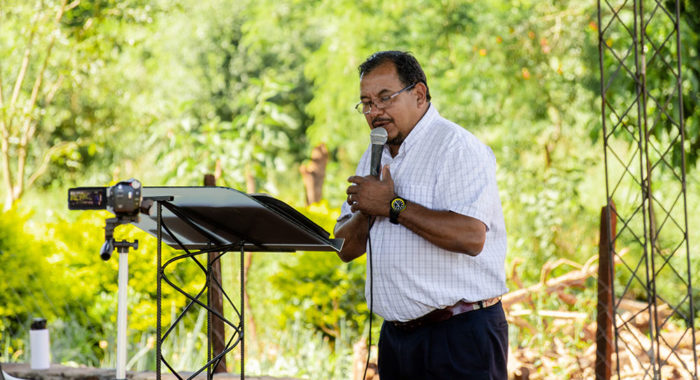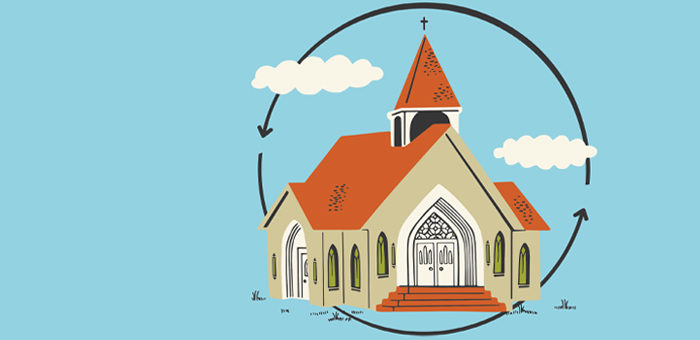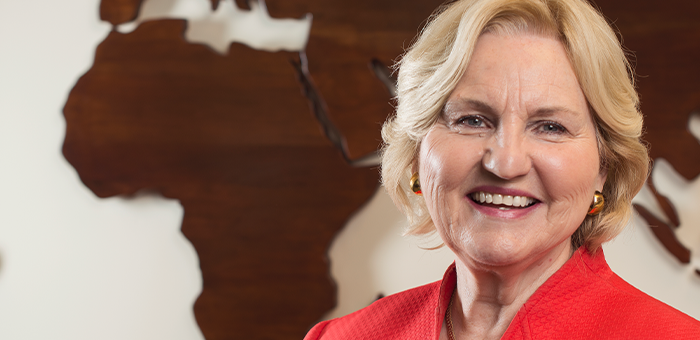I had just turned into the Sunday School wing when I felt the telltale squish of carpeting under my feet, water seeping up the edges of my ballet flats. I groaned. I slipped off my shoes, cuffed up my jeans, and waded through an inch of water to the bathrooms, praying that the holding tanks weren’t backing up again. Happily, the water gushing from beneath the sink in the women’s restroom was clean. But my Tuesday had just gone down the drain — literally. I shut off the water, texted the head trustee, and grabbed a mop.
There’s a lot more to pastoring than developing and preaching sermons, and that is especially true for pastors who serve at small- to medium-sized churches run mainly by volunteers. Despite the dire warnings from church growth experts and leadership seminars, we are Jacks and Jills of all trades, intimately involved in our church and community.
Any given day might find us serving communion in a nursing home, swinging a hammer beside a congregant, sitting in a courtroom during a custody hearing, or buying gas cards for the person who came in off the street. We plan the services, sit on the committees, pick up the half-empty Dunkin’ Donuts cups the youth forgot under the seats on Wednesday, and make sure someone is looking in on Bob while Dolores is in the hospital. We are pastors, looking after the flock God has entrusted to our care. And while we admire Tim Keller’s preaching as much as the next person, when was the last time he showed up to your kid’s middle school band concert?
Forgive me if I sound defensive, but when it comes to preaching, I can’t even compete with my own best efforts most weeks, much less the pressed and polished eloquence of Christian celebrities whose main trade is words. Some weeks I have days of inspired study to weave into a carefully crafted sermon. Other weeks I’m ankle deep in my community’s literal and metaphorical poop.
Church attendance has been declining for years, even among those who identify as churchgoers. There are valid reasons to skip church, but “I learn more listening to sermons on Stitcher” isn’t one of them. And lest we blame it all on the Millennials, I’ve heard more than one older person cite their favorite TV preachers as an excuse for their spotty church attendance.
Since when was church all about preaching and teaching? Even the Reformers, those early champions of the central role of the sermon in Christian worship, knew better than that. The church is a family, and being part of a family involves regular interaction with other human beings — even human beings who annoy, embarrass and disappoint us at times. The church is a body that works together to perform many vital functions, not just a disembodied mouth yammering into ears plugged with Bluetooth buds.
Evangelicals may be particularly guilty in this area. Our tradition was born out of the revivals, where music and preaching (usually by a celebrated circuit rider) took center stage, with nary a wafer or wine glass to be found. It’s not surprising that our services still bear resemblance to their revivalist roots, but when the average evangelical thinks church is mostly about the message and the music, we have lost something vital. Why should someone inconvenience themselves by attending church when better, shinier and infinitely more convenient options are available for easy consumption online?
Honestly, though, I usually assume there are other issues at play when a believer trades their local church for a podcast preacher and virtual community. Maybe the person has hit a spiritual growth spurt and is starving for solid food the rest of the congregation isn’t ready to digest. Maybe they have questions, and don’t feel like their church is a safe place to ask them. Maybe they have been hurt by someone in their church and feel retreat is their only viable option.
Ironically, these issues all stem from a failure of community — a failure to nurture, a failure to listen, a failure to create a safe space for believers to flourish in every stage of their spiritual life.
The resources radio, television and the Internet have made available to us are an incredible gift, and we should take full advantage of them. But we were not created to live, learn and worship in isolation. Let’s double-down on local Christian community, and recommit to growing and getting better, together.
This article originally appeared in Evangelicals magazine.
Jenny Rae Armstrong is teaching pastor at Darrow Road Wesleyan Church in Superior, Wisconsin. She writes for publications such as Christianity Today, RELEVANT, Mutuality and Red Letter Christians. She is also author of “Don’t Hide Your Light Under a Laundry Basket” and Christians for Biblical Equality’s youth curriculum “Called Out! Kingdom Living for Missional Teens.” Armstrong has a B.A. in global studies from the University of Northwestern, and is pursuing an M.Div. at North Park Theological Seminary.




 View All Articles
View All Articles 


























